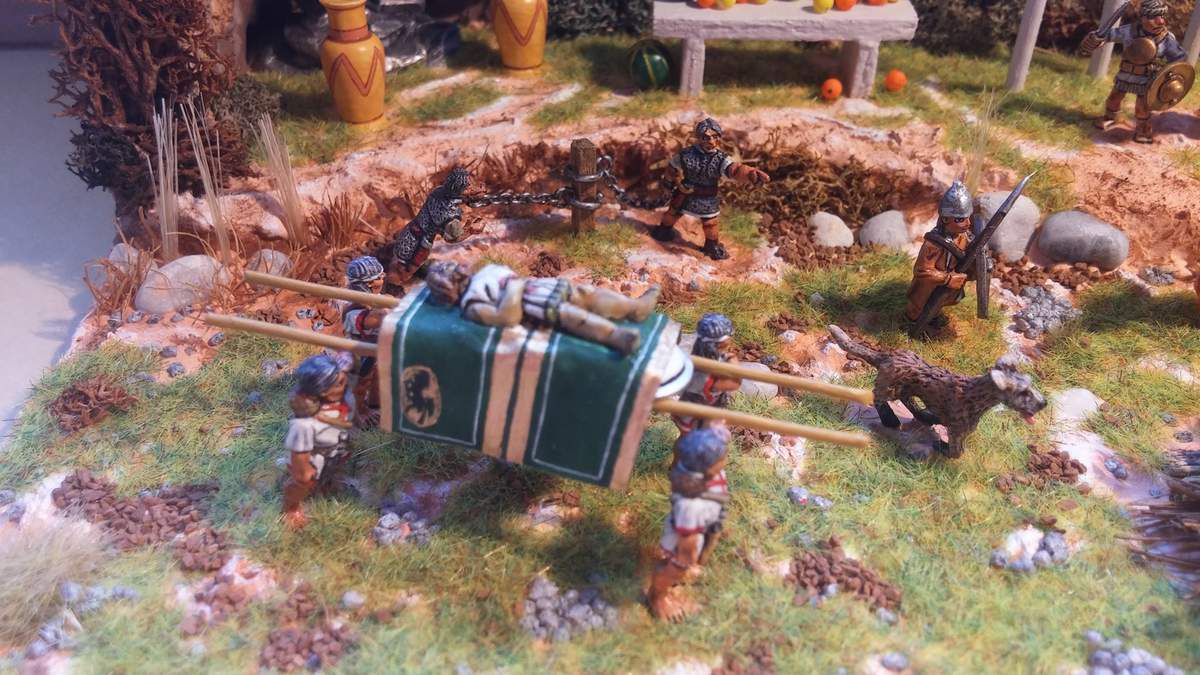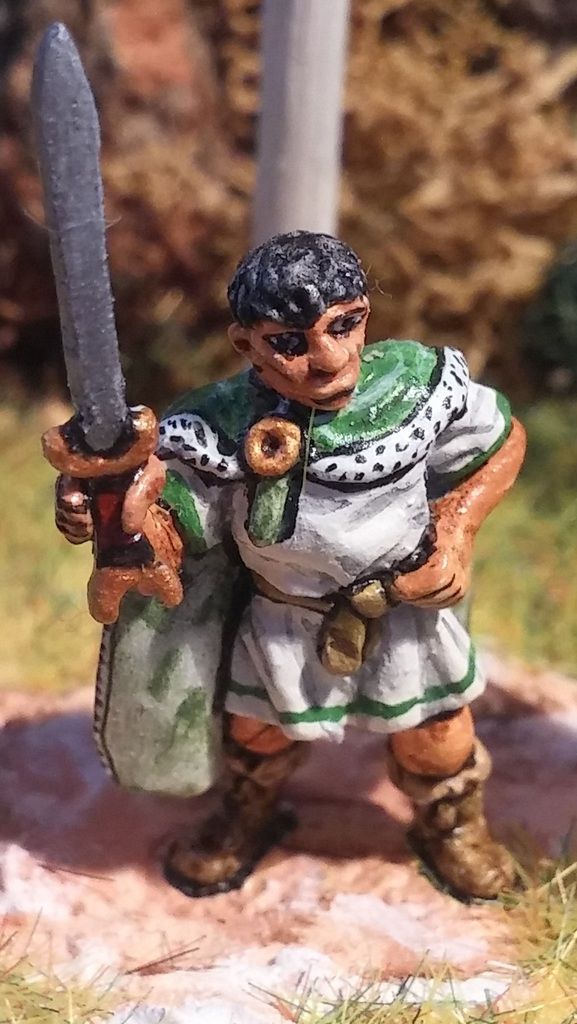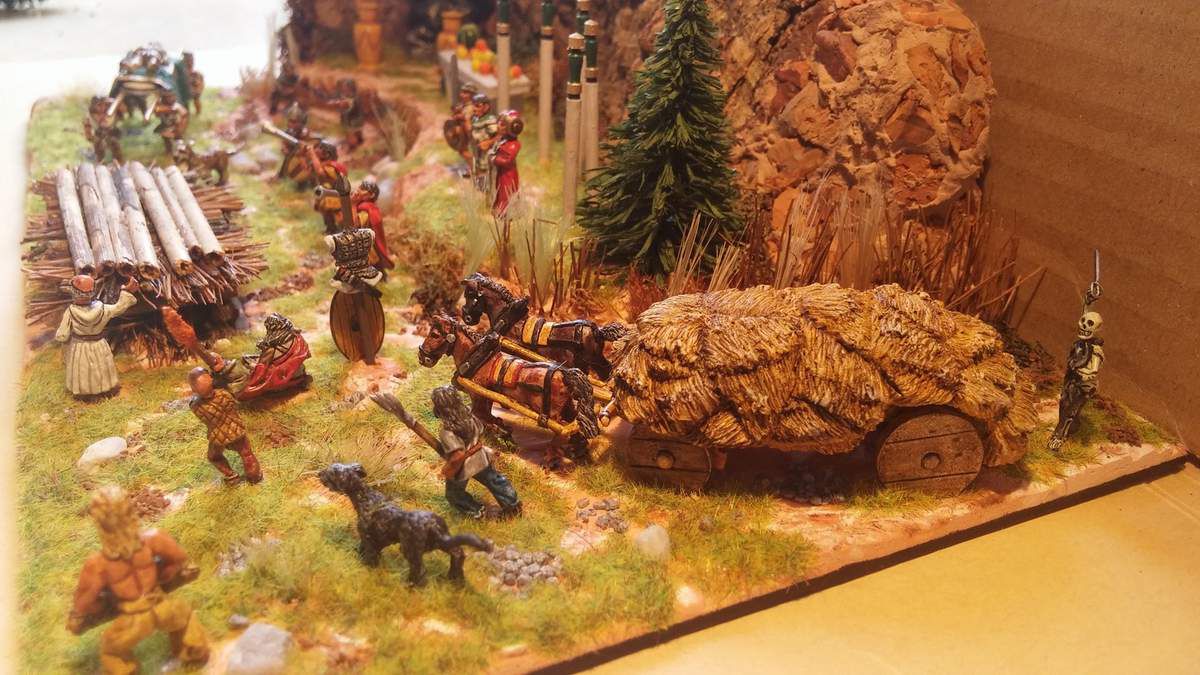Ancient Spanish VII : Le camp
Comme Sertorius l'avait prédit, le courage des Espagnols ne put compenser la discipline et la supériorité tactique des légions. Sertorius avait quand même veillé à ce que ses alliés puissent se retirer vers une place forte, en cas de revers. Mais il y eut une telle ruée que Sertorius lui-même faillit être capturé par les Romains en poursuite. Ses aide-de-camp le portèrent sur leurs épaules à travers la foule, et des hommes sur les remparts le hissèrent par-dessus les fortifications. (Salluste, Histoires).
As Sertorius had predicted, the courage of the Spaniards was no match for Roman discipline and tactical superiority. Fortunately, Sertorius had seen to it that his allies could retire to a strong-point in case of defeat. But there was such a rush that Sertorius himself was almost captured by the pursuing Romans. His aides carried him on their shoulders into the middle of the throng, and men on the ramparts managed to lift him above the wall. (Sallust, Histories).
Le chef de guerre espagnol, cependant, connu une mort héroïque sur le champ de bataille. Son corps fut ramené vers les terres sacrées de la tribu, pour y être brûlé selon la tradition ancestrale.
The Spanish war chief, however, met an heroic death on the battlefield. His remains were carried to the tribe's sacred grounds to be incinerated according to the ancestral tradition.
Peinture / Paintwork : Eric Buyck + Titus Pullo.
Voici la dépouille du défunt, portée vers le bûcher. A l'arrière-plan, 2 prisonniers romains qui seront probablement sacrifiés aux dieux... L'un d'eux essaie vainement de s'arracher de ses chaînes ; l'autre exprime encore sa défiance.
Here are the remains of the deceased, carried to the funeral pyre. In the background, 2 Roman prisoners, who will no doubt be sacrificed to the gods... One of them tries hopelessly to free himself from his chains, while the other is still defiant.
Le bûcher funéraire, avec les armes du chef défunt en arrière-plan, tandis que le druide récite ses incantations.
The funeral pyre, with the arms and armour of the defunct chief displayed in the background ; meanwhile, the druid recites his incantations.
C'est le fils aîné qui succède à son père. Sa mère et son frère cadet se tiennent à ses côtés. Il jure solennellement de venger son père et de chasser l'envahisseur romain !
The eldest son will succeed his father. His mother and his younger brother stand by his side. He solemnly swears to avenge his father and to drive the Roman invaders away !
Le Taureau Sacré (un souvenir d'une visite touristique à Grenade).
The Sacred Bull (a souvenir of sightseeing in Granada).
De derrière la charrette, La Mort vient chercher l'âme du défunt.
Hidden behind the wagon, Death comes to take the soul of the deceased.







